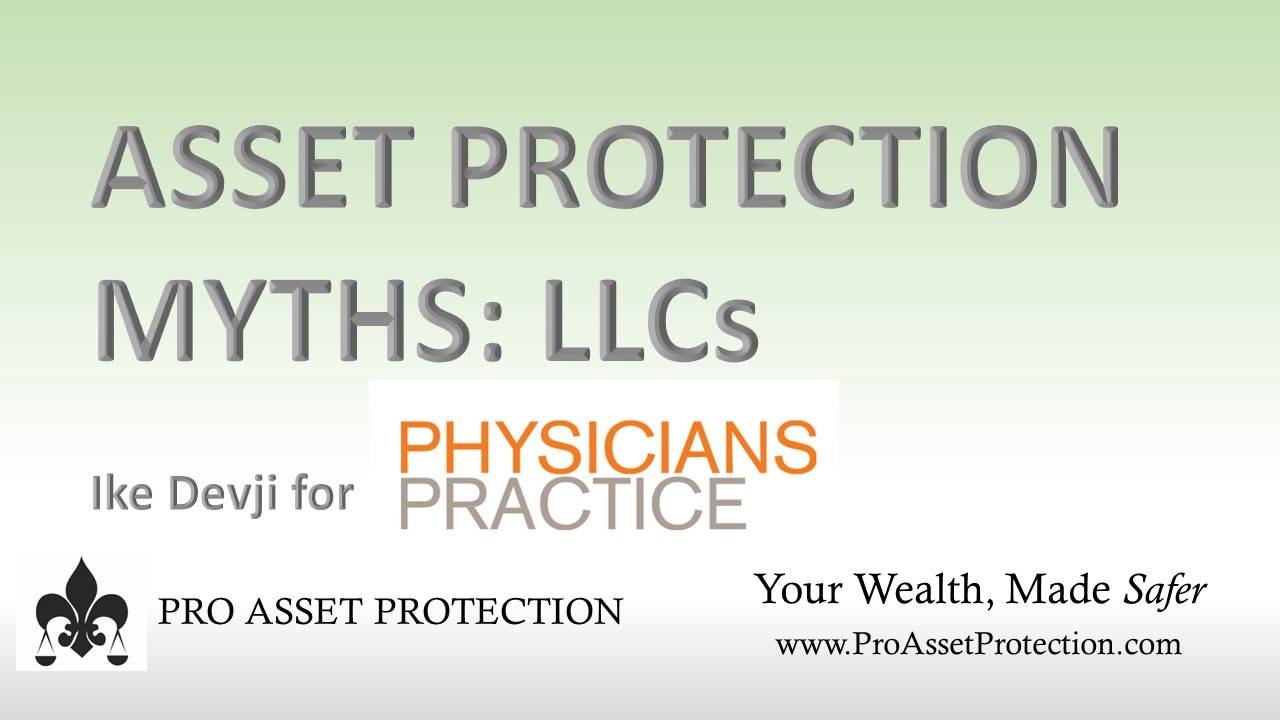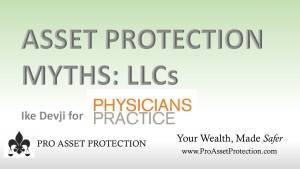It is important for every doctor and business owner to understand some basics about the Limited Liability Company, commonly known as an LLC; what it is, how it is created, and
some of the benefits a well-drafted and maintained LLC can provide.
Unfortunately I regularly get reports from my own clients that have been at medical seminars and hosted financial dinners where dangerous myths and misinformation, already popular among laypeople are being reinforced. The level of this misinformation ranges from incompetence to outright fraud in the very worst cases.
Much of this information is disseminated by non-attorney promoters, who don’t provide legal counsel or advice but “document preparation,” with no professional oversight or liability — leaving the client holding the bag and on his own when things go wrong. Even using a law firm is not a guarantee of good advice unless the attorneys are qualified and
experienced in this area of the law, so make sure you have good help.
Here are a few important distinctions to be aware of:
1. No LLC is “secret,” but they can be “private”
If you see the word “secret” used in any LLC marketing or advertising be very careful. Despite what physicians are being told, there is no such thing as secret in legal and financial planning; what you are doing is only secret until you are asked about under oath, under penalty of perjury. Secrecy is never part of any competent asset protection plan and basically provides you with a plan no more sophisticated than trying to hide assets and
hoping no one ever asks you if you did so. Nevada LLC promoters in particular are notorious for this, but it’s not unique to Nevada, several states offer similar “private registration” including New Mexico, Delaware, and Wyoming. All this really means is that some states like those listed above require a lower level of disclosure about who the members (owners) of an LLC are in their public records. As such, they are considered more “private” which never hurts, and frankly is something I myself do for doctors and business owners who want privacy with the very explicit admonition that
there is no real increase in the asset protection value of such a structure, and that it will be fully discoverable in any kind of legal proceeding. There are a variety of very legal, ethical, and legitimate reasons why you might want privacy, including wanting to keep your nonmedical (and possibly controversial) business and investment activities private,
keeping a low profile to avoid being perceived as a financial target, and simply to avoid jealousy and resentment about your success among patients or clients and even your staff and colleagues, to name just a few.
2. Using a “private” LLC usually won’t provide a tax benefit
Another common marketing ploy is the general statement that using a Nevada (or similar) state LLC will reduce your tax liability. While this may be true for those who actually live and operate in one of these LLC friendly states that have tax benefits, it is often not the case for those living in one state and registering their LLC in a different state.
EXAMPLE: California resident Dr. Jones created a Nevada LLC that owns her California rental homes, but still pays all applicable California taxes and fees, and in some cases additional fees to register as a “foreign corporation” doing business in her state. Add to that questions about conflicts of law and the recurring annual costs of having a registered agent for service of process in the state where the LLC was registered and the benefits promised start to erode quickly.
3. A word on divorce
Among the most egregious promises I’ve seen made by scam artists is a blanket statement that LLCs “help in divorce.” Putting assets that are already community property or marital property, including income earned during the marriage or an investment made with marital assets, into an LLC your spouse does not have an interest in will not help you in a divorce, in fact it may adversely affect you if it seen to be fraudulent, theft, conversion, or concealment. Using a properly drafted LLC may however be one good device for keeping what is legitimately separate property legally distinct.



